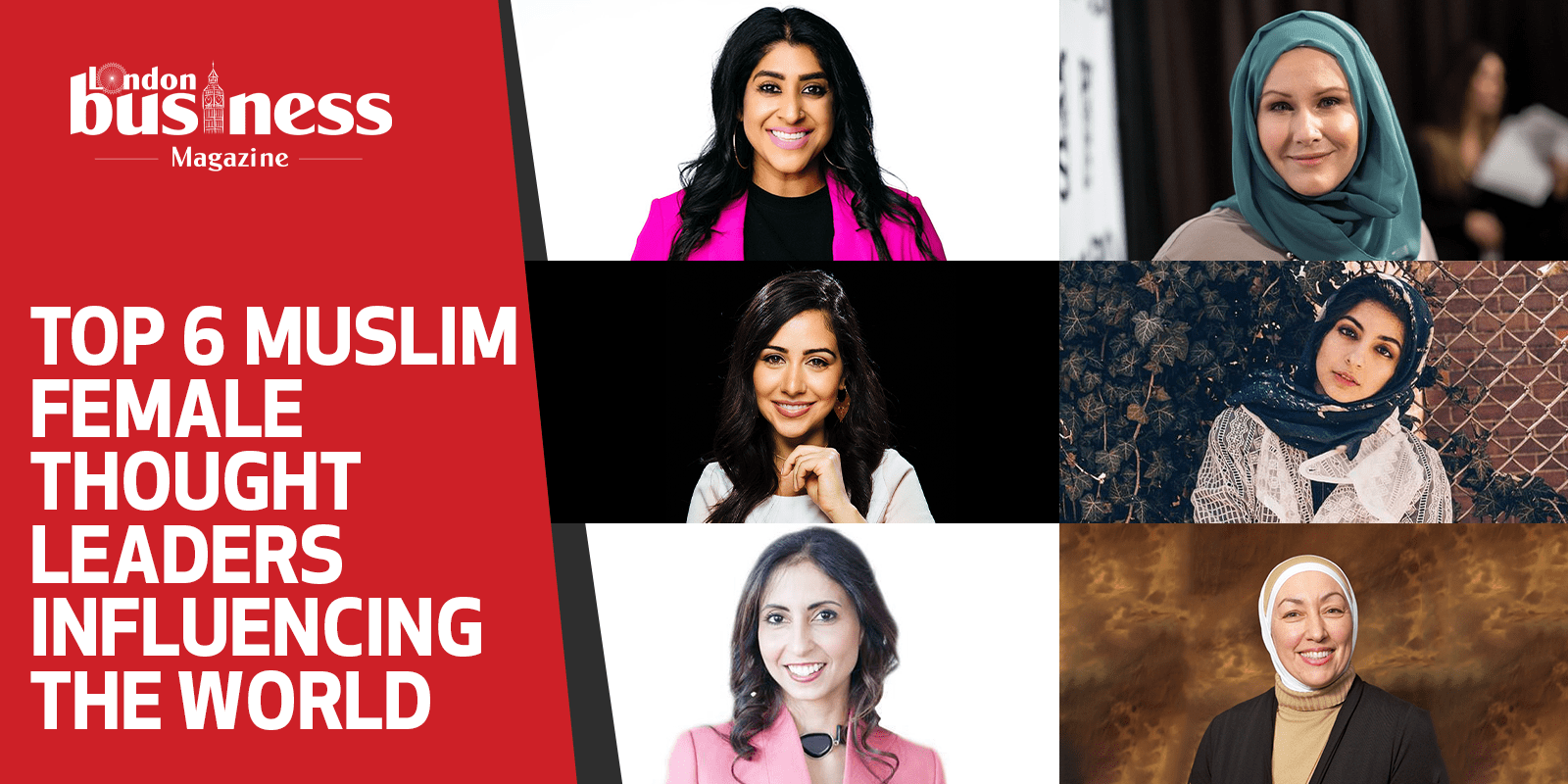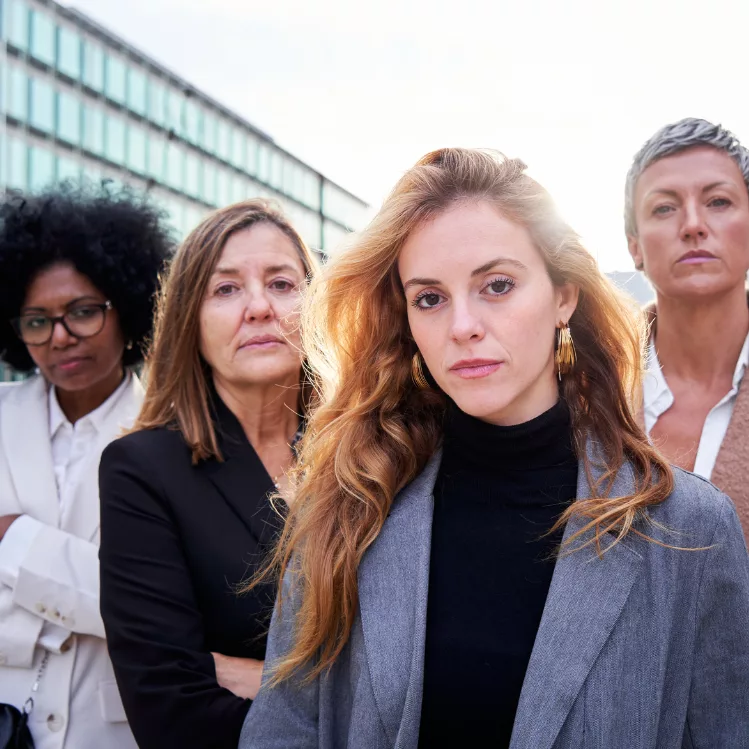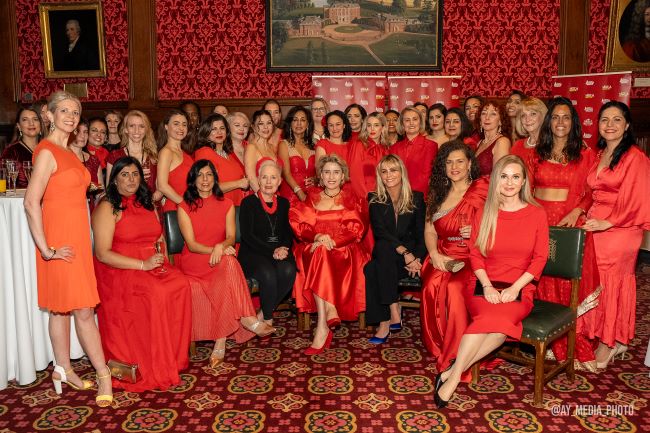
Top 6 Muslim Female Thought Leaders Influencing The World
Making a positive impact in a sea of billions of voices is difficult enough in itself. The following six women have been doing it anyway by kicking down the doors that contained long-standing, outdated mentalities that have held Muslims — especially Muslim women — back for too long. From transcending authors to counter-culture journalists to marketing leaders, these women are at the forefront of generational change, and they do it all-the-while standing proud of their religious identity.
1. Amna Mirza: CMO, Zakat Foundation of America
Amna Mirza makes a point to channel her power to do good in the world, and that’s why the Canadian-born Pakistani aligned so well with Zakat Foundation of America’s mission: to put humanity above all else. And after three years of uplifting individuals and saving lives, she believes both she and the organisation she proudly represents are on the right path to creating authentic relationships with their donors. More importantly, she believes they are on the path to creating meaningful, lasting social change. She’s on a mission to make ZAKAT synonymous with CHARITY in non-Muslim households, removing bias from charitable giving.
With the mantra of utilising her role for the greater good, a key function of this model is ensuring 100% of the proceeds donated to emergency relief are actually sent to the emergency work, and 100% of the orphan care proceeds go directly toward helping the orphans they sponsor.
At home, Mirza makes it a priority to educate her two young daughters on issues that transcend cultural borders. A product of a philanthropic upbringing, Mirza’s career had her working at PBS, Sirius Satellite Radio, and Travel Channel, among a host of top-class firms. Moving from for-profit, entertainment marketing to nonprofit, faith-based marketing wasn’t too drastic a shift for her. She’s proud to challenge stereotypes of the “oppressed Muslim woman.”
Utilising her marketing and positioning power for the greater good, she changed the face of orphan sponsorship and committed to stop using pictures for orphan selection. The change was risky, but she believes it was the right thing to do. In the end, Mirza chose to lead with love and has seen an incredible return on the strategy.
2. Asma Khalil: Professor of Obstetrics and Maternal-Fetal Medicine at St. George’s University Hospital
Professor Asma Khalil is a subspecialist in Maternal and Fetal Medicine, a routine that involves scanning women and babies with complications in pregnancy. The London-based Khalil offers private healthcare, as well as offering her services to the NHS.
A renowned author of over 300 scientific journals, Khalil is heralded for her efforts to minimise the physical stress pregnant women go through. Her implementation of clinical guidelines in practice, such as reducing inequalities in care across the NHS, has labeled her an innovator. She is the inventor of the Hampton, an award-winning digital innovation that enables pregnant women to monitor their blood pressure safely at home.
Khalil is committed to utilising her name outside of the healthcare industry, primarily providing educational opportunities in underrepresented regions of the world. In 2020, she was appointed as a Trustee for the International Society of Ultrasound in Obstetrics and Gynecology (ISUOG), where she has contributed to its scientific program and runs two approved courses of her own, one of them in Egypt.
3. Dena Takruri: Palestinian-American Journalist
Dena Takruri gained her plaudits bringing to light the atrocities Arab-Americans face in North America. As the co-host and producer of What’s Happening — a satellite show on the Arab Radio and Television Network (ART) — Takruri focused on political, cultural, and social issues pertaining to Arabs who, like her, grew up in the United States.
Speaking on the disparity between her show and what was considered the norm in Western society, Takruri admitted her insecurities often overshadowed her pride of being mixed-race. “Newscasters, when I was growing up, were predominantly all white,” she says. “I would see how demonised Arabs and Muslims were.”
As the current presenter for AJ+, Takruri’s mission is to challenge the establishment; she recently called out former President Donald Trump for his skewed perception of Latino immigrants. Her narrative counters the Western ideology that Arabs are the troublemakers, instead relying on her integrity to supply viewers with an objective gaze, and gaining acclaim from young Arab and Muslim Americans who view her as a role model. Speaking to Vox, she revels in her newly found platform, saying, “I’m proud to be a positive representation for those youth who can say, ‘I can grow up and be on camera and make a difference.’ The sky’s the limit.”
Dena Takruri is currently the host of Direct From With Dena Takruri, a role she’s been in since 2015. The show has received critical acclaim, being recognised by the Edward R. Murrow Award, Webby Award, Shorty Awards, and Clarion Award.
4. G. Willow Wilson: Comic Book Writer
Co-creator of the Hugo and American Book Award-winning series Ms. Marvel, G. Willow Wilson has changed the landscape of the superhero genre by shifting the demographics of its audience. Born in New Jersey in a traditional, upper-middle-class family, Wilson published a 2010 memoir, The Butterfly Mosque, which details her conversion to Islam at age 20 and the subsequent backlash she received, along with her own doubts about its credibility. The Butterfly Mosque is a subtle portrayal of Muslim womanhood, and chronicles her own upbringing and cross-cultural experiences of embracing Islam as an American girl raised in an atheist home.
An American comic book writer, prose author, essayist, and journalist, Wilson has broken down the barriers of the traditional superhero and is leading the renaissance in female comic superheroes, as well as mixed ethnicity ones. Ms. Marvel is a coming-of-age story about a Pakistani-American girl in Jersey City who comes to terms with her newly acquired superpowers. It revolutionised the comic book industry and provided Wilson the platform with which to change the landscape of the definition of a superhero. Her comic Cairo was written while she taught English in Egypt, having only recently converted to Islam.
5. Hoda Katebi: Iranian-American Writer
Founder of the Blue Tin Production (an apparel-manufacturing co-operative that sets the bar in labor and sustainability, and run by immigrant, refugee, and working-class women of colour), Hoda Katebi set-out to disrupt the fashion industry in the U.S. by lowering the amount of pollution that goes into producing clothes.
Katebi — born in Oklahoma to Iranian parents — began her writing career in 2013 by publishing critiques on the fashion industry in her platform, JooJoo Azad (translating to “free bird”). There, she focused her content on feminism as well as a resistance to Western Orientalism and domestic Iranian mandatory dress codes.
As a Muslim woman growing up in Oklahoma, Katebi encountered racial prejudice regularly and was, therefore, able to build an enterprise that utilised fashion and art, to not only fight back against her oppressors but also using art for liberation, self-care and as a vehicle for social change. As she eloquently puts it: “if you’re not questioning the status quo, and imagining alternatives, you’re silent and complacent.”
6. Najah Bazzy: Humanitarian
An internationally recognised healer, humanitarian and interfaith leader, Najah Bazzy is the founder of Zaman International, a nonprofit organisation advancing the lives of marginalised women and children by enabling them to meet essential needs and break the cycle of poverty. Providing a blend of urgent assistance and self-reliance, the community-driven approach empowers households through vocational training and proudly states that it has transitioned “from a hand-out to a hands-on model.”
Bazzy’s commitment to the cause is a credit to her integrity and passion for creating a platform for healing, especially bearing in mind that she left a six-figure salary as a critical-care nurse to build Zaman International.
She cites this empathetic model as a big reason she founded Zaman, stating, “we have a human responsibility to care for one another.”
She says as an organisation it is at its best when focusing on dignity and advocating hope. “As a nurse I heal others, while Zaman is a place that heals the world.”
In 2019, Bazzy was recognised as a Top Ten CNN Hero, which shone the spotlight on her growth from a grassroots team of volunteers to a world-class organisation with a global reach of over 1.8 million in 20 countries since 2010. Bazzy also serves as an Adjunct Professor at Michigan State University’s Institute of International Health.





